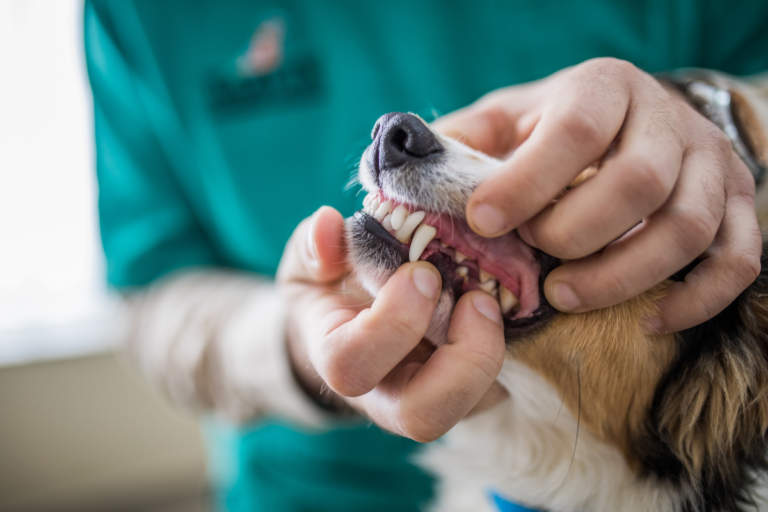Healing Our Beloved Pups: Strategies for Dog Heart Disease
Understanding Dog Heart Disease
We love our dogs to bits, so it’s vital to stay clued up about health hiccups, especially heart issues. Let’s take a gander at some heart troubles our four-legged pals might face.
A Look at Dog Heart Problems
When we say dog heart disease, we’re talking about all sorts of issues that can mess with a pup’s ticker. Whether they’re born with it or get it later, spotting the signs early gives them a fighting chance and a happier life.
Dog heart issues boil down to stuff like dodgy valves, dodgy muscles, or infections. Being savvy about these helps us keep our pooches on top form. For a full scoop on dog heart health, check out our article dogs heart.
What About Specific Heart Problems in Dogs?
Some heart problems pop up more often than others. Here are a few common ones and what they’re all about:
| Type of Heart Trouble | What’s Going On |
|---|---|
| Myxomatous Mitral Valve Degeneration (MMVD) | This valve issue hits mostly small, older dogs and is quite popular in doggy circles (PetMD). |
| Hypertrophic Cardiomyopathy (HCM) | Here, the heart beefs up too much so pumping blood becomes a challenge. |
| Heartworm Disease | Nasty worms hitch a ride from mosquitoes and wreck the heart and lungs (PetMD). |
| Stenosis | This one’s about narrowing near heart valves, making blood travel tricky – often seen in young pups like Pulmonic or Subaortic types (PetMD). |
| Dilated Cardiomyopathy (DCM) | Think of a heart that’s stretched too thin, struggling to keep the blood flowing like it should. |
Keeping tabs on these is crucial. Some breeds, like the Cavalier King Charles Spaniel, are prone to these hiccups along with other cavalier health issues, so regular vet visits are key.
For more scoop on dog heart failure, symptoms and solutions, we’ve got your back with extra resources. Knowing what’s what and catching things early can make all the difference for our furry champs.
Common Heart Conditions in Dogs
In our quest to get a grip on dog heart disease, it’s real crucial we homerun those common heart problems that mess with our furry pals. So, let’s lay it out: Myxomatous Mitral Valve Degeneration (MMVD), Hypertrophic Cardiomyopathy (HCM), Heartworm Disease, and Stenosis in dogs.
Myxomatous Mitral Valve Degeneration (MMVD)
Myxomatous Mitral Valve Degeneration (MMVD) tops the charts for dog heart valve issues. Older, small-breed dogs are the usual suspects here. It’s all about that mitral valve wearing out, causing a bit of a kerfuffle in blood flow (PetMD).
| Breed | Age Group | Prevalence |
|---|---|---|
| Cavalier King Charles Spaniel | Geezer pups | High |
| Dachshunds | Senior pals | Moderate |
| Chihuahuas | Oldies | Moderate |
Craving more deets on how MMVD plays out in small breeds? Check out what we’ve got on cavalier health.
Hypertrophic Cardiomyopathy (HCM)
With Hypertrophic Cardiomyopathy (HCM), things get thick—literally! The heart muscle goes all Hulk, which means normal blood filling the heart chamber is a no-go. This can lead to heart troubles and is spotted in dogs and our feline friends too (PetMD).
| Symptoms | Breeds Affected | Risk Level |
|---|---|---|
| Trouble breathing | Boxers | High |
| Passing out | Rottweilers | Moderate |
| Not eating well | Spaniels | Moderate |
For the lowdown on HCM symptoms and what you can do, check out our bit on dog heart failure.
Heartworm Disease
Heartworm disease is no laughing matter—those pesky parasitic worms show up thanks to skeeter bites. They’re squatters that clog up heart-to-lung tunnels, stirring up inflammation and wreaking havoc on doggie hearts (PetMD).
| Symptom | Stage | Impact |
|---|---|---|
| Hackin’ cough | Early | Mild |
| Shedding pounds | Mid | Moderate |
| Hard to breathe | Advanced | Severe |
Wanna geek out on how mosquitoes and heartworm team up to make life hard for our pooches? Dive into our guide on dogs and ticks.
Stenosis in Dogs
Our young ‘uns with stenosis are born with a skinny patch around their heart valves. Pulmonic and subaortic stenosis are the classics, making it tough for blood to do its thing through those valves (PetMD).
| Type | Common Breeds | Symptoms |
|---|---|---|
| Pulmonic Stenosis | Bulldogs | That heart murmur thump-thump |
| Subaortic Stenosis | Boxers | Getting tuckered out fast |
If you’re keen to dig into the nitty-gritty of dog heart disease and the fix-it strategies, we’ve got you covered.
Risk Factors and Causes
Dog heart disease has quite a few “culprits,” if you will. Knowing these trouble-makers can help us dog guardians keep our furry pals safe and even dodge these issues.
Age and Breed Influence
Some dog breeds and age groups just can’t catch a break when it comes to getting heart disease. Take, for example, older tiny sidekicks like Cavalier King Charles Spaniels and Dachshunds; they’ve got this thing called Myxomatous Mitral Valve Degeneration (MMVD) that keeps popping up. Big guys like Great Danes and Doberman Pinschers deal more with Dilated Cardiomyopathy (DCM). And let’s not forget puppies—they sometimes get born with stuff like stenosis, which messes with their blood flow.
| Age/Breed Group | Common Heart Conditions |
|---|---|
| Older Small Breeds | Myxomatous Mitral Valve Degeneration (MMVD) |
| Older Large Breeds | Dilated Cardiomyopathy (DCM) |
| Puppies | Stenosis |
For more breed-specific scoop, check out Cavalier Health and German Shepherd Health Problems.
Dietary Factors
Diet? Oh, it’s huge for heart health. If your pup is munching on too many processed goodies and skimping on the healthy stuff, you’re asking for trouble. Grain-free diets might also put ’em at risk for that DCM thing we talked about earlier. And being on the chunky side? Yeah, that’s a problem for heart disease as well. Keeping your dog’s diet balanced goes a long way in dodging these issues.
| Dietary Factors | Potential Impact on Heart Disease |
|---|---|
| High-Processed Foods | Nutrient deficiencies |
| Grain-Free Diets | Increased risk of DCM |
| Obesity | Increased overall risk |
Maybe peek at Fido’s food bowl and have a chin wag with the vet if need be. Oh, and for weight loss tips, see our piece on overweight dog.
Possible Genetic Links
Sometimes, it’s in the blood. Yep, genes. Some breeds like Miniature Poodles and Cocker Spaniels tend to get hit with Chronic Valvular Disease (CVD), thanks to their genetic make-up. Knowing these risks early can make a world of difference in nipping problems in the bud.
| Breed | Likely Genetic Conditions |
|---|---|
| Miniature Poodles | Chronic Valvular Disease (CVD) |
| Cocker Spaniels | Chronic Valvular Disease (CVD) |
| Cavalier King Charles Spaniels | Multiple Heart Issues |
Early genetic check-ups are worth their weight in gold for breeds with a shaky heart history. More nuggets of info can be found in our healthiest dog breeds guide.
Grasping these risk factors lets us step up our game, whether that’s making sure they’re eating right, getting those regular vet visits, or just being on our toes about genetic quirks. We’re here to keep dog heart disease at bay together.
Signs and Symptoms
When it comes to spotting dog heart disease, knowing the signs and symptoms early can totally change how things pan out for our furry pals. Here’s a rundown on what to look for, from the first hunches to full-blown alarms of heart trouble.
Recognizing Heart Disease in Dogs
Pups with heart disease sometimes flash some obvious signals, but early on, these might be easy to miss. Keep an eye out for a nagging cough, breathing struggles, unexpected fainting or collapse, and suddenly being a couch potato. Trust your gut if something seems off and chat with your vet. According to Morris Animal Foundation, catching it early makes treatments way more effective.
Early Warning Signs
Heart issues in dogs often keep quiet until they’ve really settled in. Here’s some stuff to watch for early on:
- Persistent cough
- Breathing hassle
- Wiped out easily
- Skipping playtime
- Not eating right
- Keeping to themselves more
During check-ups, the vet might pick up on heart problems by hearing a murmur. A mumble in their heart rhythm sometimes means bigger problems down the line (VCA Hospitals).
Advanced Symptoms to Look Out For
As things get worse, signs hit harder and become scary. Here’s what develops:
- Non-stop coughing
- Struggling for breath ‘cause of lung fluid
- Faint or drop like a sack of potatoes
- Little to no interest in food
- Bloated belly from fluid buildup
- Gums turning pale or bluish—bad oxygen levels
Here’s a table to break it down:
| Symptom | Early Stage | Advanced Stage |
|---|---|---|
| Coughing | Persistent but treatable | Persistent and continuous |
| Breathing | Difficulty breathing | Respiratory distress |
| Energy Levels | Fatigue, reluctance to exercise | Fainting, collapse |
| Appetite | Poor appetite | Significant loss of appetite |
| Physical Appearance | Normal | Swollen belly, pale/blue gums |
| Behavior Changes | Isolation, reluctance to play | Lack of all these activities, severe discomfort |
Data from VCA Hospitals
Checking for these things at home is key, but regular vet visits for quick diagnosis and strong treatments help manage the condition. For more info on dog heart failure and other dog diseases, our internal resources have your back.
Knowing these signs gives us the power to keep our dogs feeling good, so they live better even if heart issues are part of their world. Keeping an eye out and those all-important vet visits are the secret to handling heart problems in our best buddies.
Diagnosis and Monitoring
Taking care of our furry pals’ hearts is important! Knowing the ropes when it comes to diagnosis and keeping tabs on their health can make a huge difference for our four-legged friends. Catching things early is key for managing dog heart disease.
Clinical Tests for Heart Conditions
Figuring out what’s up with doggy hearts involves a handful of tests. These help vets see how their ticker’s doing and spot anything off. Some go-to’s in the vet’s toolkit are:
- Chest X-rays: Handy for spotting changes in heart size, shape, or any lung fluid mischief.
- Electrocardiogram (ECG): This checks the heart’s electrical rhythms. Weird beats? This’ll catch ’em.
- Echocardiogram: Like a heart selfie through ultrasound, it gives the clearest view of what’s going on and is often the go-to for heart problems.
- Blood Tests: They check for cardiac markers like NT-proBNP that’ll hint if the heart’s under pressure or facing damage (Carolina Veterinary Specialists).
| Diagnostic Test | Purpose |
|---|---|
| Chest X-ray | Detect heart enlargement and fluid in lungs |
| Electrocardiogram (ECG) | Identify irregular heartbeats |
| Echocardiogram | Visualize heart structure and function |
| Blood Tests (NT-proBNP) | Measure heart stress/damage |
Got questions? A pet heart specialist can give you the full lowdown and tailor a plan for handling stuff (CVCA Cardiac Care for Pets).
Importance of Regular Check-ups
Getting Spot or Fido to the vet regularly can help spot heart trouble before it gets serious. These visits usually include a look-over and may even prompt more tests. Catching issues early means better outcomes.
Some breeds have more heart trouble than others. So if you’ve got a Cavalier, Bulldog, or Dachshund, you might especially wanna keep those vet appointments.
Monitoring Heart Health in Dogs
Keep an eye on your pup’s heart at home! You can do this with simple tasks, like watching how fast they breathe. If that rate starts climbing, it might mean trouble. This should be checked in with your vet (VCA Hospitals).
| Activity | Ideal Respiratory Rate |
|---|---|
| Resting | 15 – 30 breaths per minute |
Wanna check their resting rate? Here’s how:
- Make sure they’re chill and not up to anything crazy.
- Count their breaths for a minute.
- Jot it down and let your vet know if anything weird pops up.
Keeping a lookout at home and sticking to those vet checks can really help manage dog heart disease like champs.
Curious about more doggy heart insights? Take a look at our pieces on dog heart failure and general dog diseases.
Treatment and Management
Helping dogs with heart disease calls for a solid game plan – a mix of meds, food tweaks, and some lifestyle changes. Let’s dive into ways we can help our doggos feel their best.
Medications and Therapies
Meds are like the first responders for dogs with heart issues. They improve heart function, ease symptoms, and keep complications at bay. Here’s the usual lineup:
- ACE Inhibitors: They make blood vessels chill out, giving the heart an easier job.
- Diuretics: Goodbye, extra fluids in the lungs and tummy.
- Beta-Blockers: Take the load off the heart by slowing down its beats.
- Anti-arrhythmics: Keep the heart’s rhythm steady and smooth.
Chatting with a vet to nail down the right meds is key. Adjustments might happen as time rolls on, so don’t skip those vet dates. Dive deeper into this topic with our insights here.
Dietary Modifications
What our dogs eat matters big time in handling heart disease. A good meal plan keeps the pounds in check and the heart happy.
- Low Sodium Diets:
- Too much salt is a no-go, leading to water issues and heart problems.
- High-Quality Protein:
- Keeps muscles strong, crucial for a healthy ticker.
- Omega-3 Fatty Acids:
- Takes the edge off inflammation and boosts heart health.
Balanced doggie dining is the goal. Peek at our diet tips for more advice.
| Nutrient | Wins | Best Sources |
|---|---|---|
| Low Sodium | Eases water retention | Special dog foods |
| Omega-3 Fatty Acids | Tames inflammation | Fish oil caps |
| High-Quality Protein | Muscles love it | Lean meats, special dog chow |
Lifestyle Changes for Dogs with Heart Disease
A bit of lifestyle tinkering goes a long way for heart-afflicted pooches. Let’s look at some changes we can roll with:
- Gentle but Regular Exercise:
- Easy-going, routine activities help keep body weight and heart health in line without pushing the heart too hard.
- Cut Stress:
- Keep things chill, avoiding heart-messing stress triggers.
- Frequent Vet Visits:
- Checking in often with the vet helps track the condition and tweak treatments.
Pay attention to any red flags early. For a closer look at what to watch for, check out our piece on symptoms.
These care strategies—sprinkled with the right meds, food, and routine—give our furry pals a comfy life. For more on nurturing a heart-healthy space for your dog, see our guide here.






